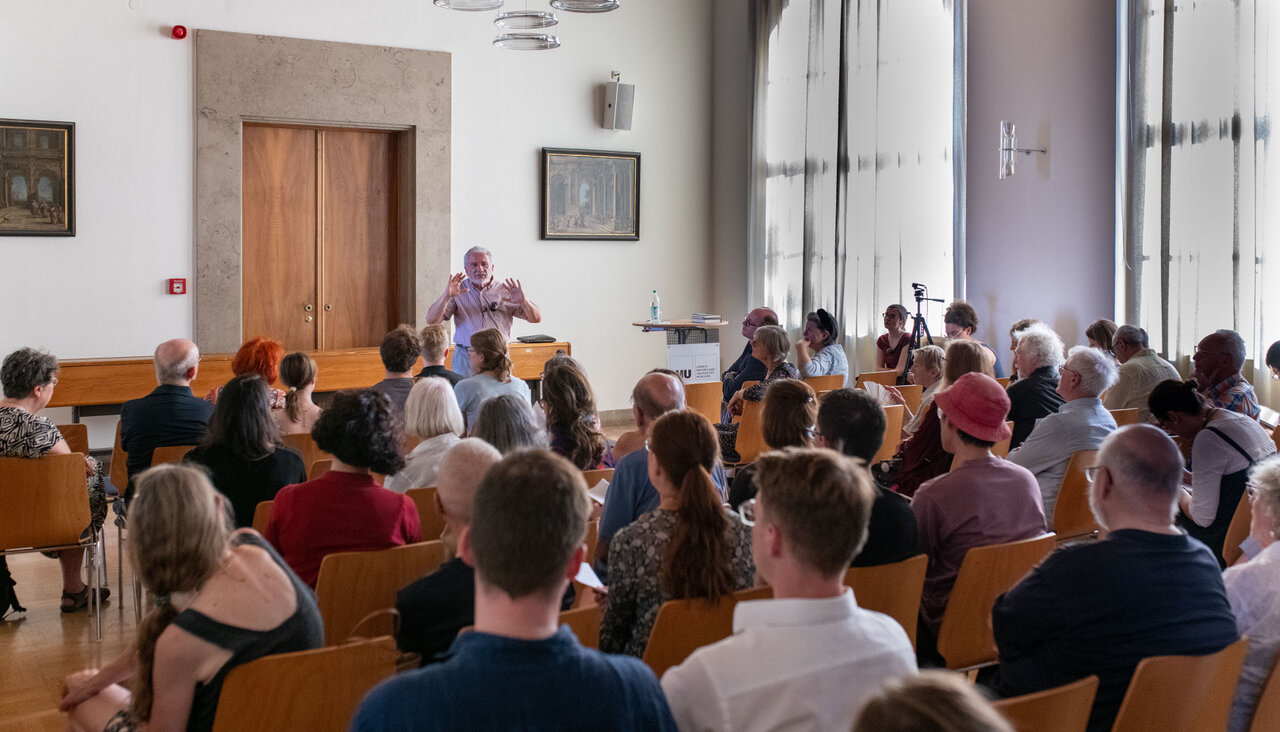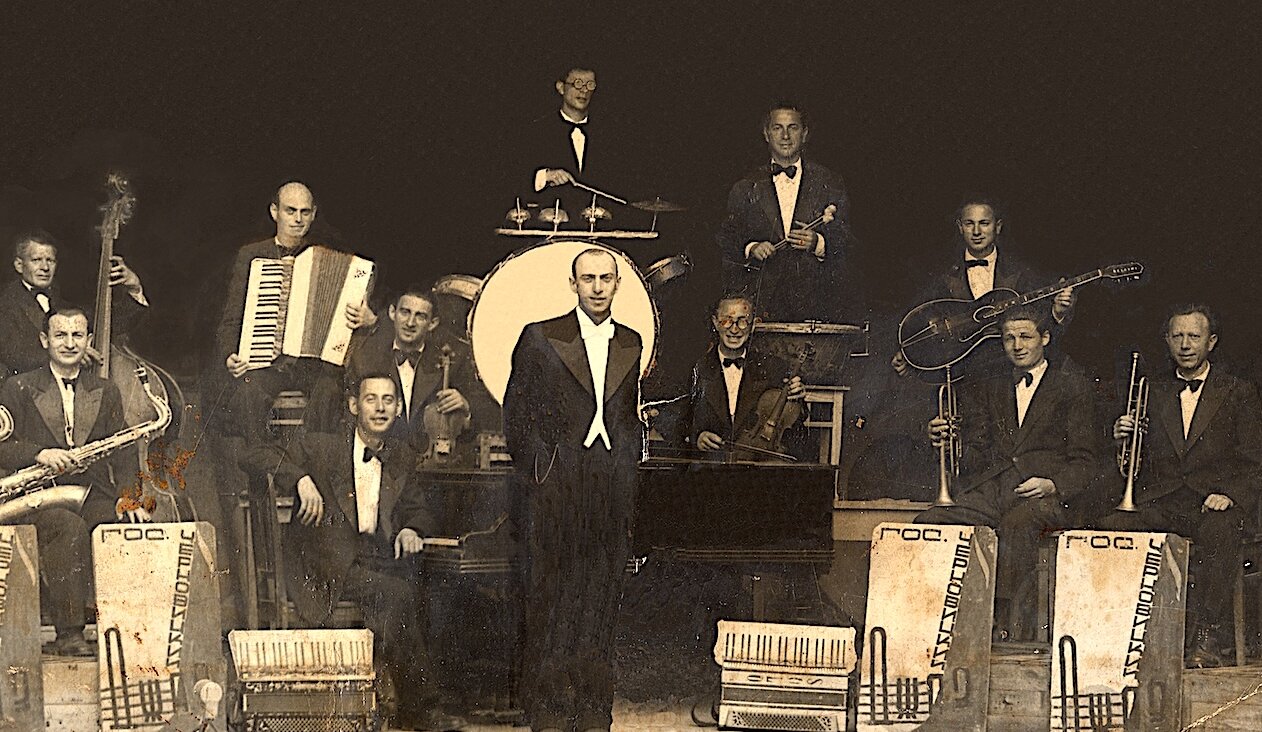ווידעאָ: אַבֿרהם סוצקעווער רעדט וועגן פּאָעזיע און פּאַרטיזאַנער לעבן WATCH: Abraham Sutzkever on poetry and partisan life (with English subtitles)
דער פּאָעט דערציילט ווי אַזוי ער איז אַריבערגעטראָטן אַ מינע־פֿעלד צום טאַקט פֿון אַ ליד.

Graphic by Angelie Zaslavsky
די וואָך איז מיט 107 יאָר צוריק אין סמאָרגאָן, ווײַסלאַנד, געבוירן געוואָרן דער גרויסער ייִדישער פּאָעט אַבֿרהם סוצקעווער. הײַנט איז ער ברייט באַקאַנט פֿאַר זײַנע לידער און פּאָעמעס, און זײַנע יאָרן ווי אַ פּאַרטיזאַנער אין ווילנער געטאָ און אין די אַרומיקע וועלדער. ער איז אויך געווען אַ וויכטיקער און טאַלאַנטירטער רעדאַקטאָר, פּראָזע־שרײַבער און רעדנער, וואָס איז אויפֿגעטראָטן מיט רעפֿעראַטן איבער דער וועלט.
ווען איך האָב געאַרבעט בײַם „ייִדישן ביכער־צענטער‟ אין אַמהערסט, מאַסאַטשוסעטס, האָב איך אָנגעפֿירט מיט אַ פּראָיעקט צו דיגיטאַליזירן דעם קלאַנג־אַרכיוו בײַ דער „ייִדישער פֿאָלקס־ביבליאָטעק פֿון מאָנטרעאַל‟. צווישן די הונדערטער ייִדישע שרײַבער, וואָס האָבן דאָרטן געהאַלטן רעדעס, איז סוצקעווער געווען איינער פֿון די פֿאַרכאַפּנדיקסטע צווישן זיי אַלע. (אַנדערע געראָטענע רעפֿערענטן זענען געווען חיים גראַדע, חוה ראָזענפֿאַרב, יעקבֿ גלאַטשטיין און אַבֿרהם יהושע העשיל).
סוצקעווער האָט באַזוכט מאָנטרעאַל, צום ווייניקסטנס, פֿיר מאָל, אין 1959, 1964, 1968 און 1987, און האָט געהאַלטן צענדליקער רעדעס בײַ דער „ייִדישער פֿאָלקס־ביבליאָטעק‟. צווישן זיי האָט מען רעקאָרדירט זעקס פֿאַרשידענע פּראָגראַמען, אַרײַנגערעכנט צוויי פֿאָרמעלע רעפֿעראַטן (וועגן דער ליטעראַרישער גרופּע „יונג־ווילנע‟ און וועגן זײַן צוגאַנג צו פּאָעזיע), דרײַ אויפֿנאַמעס און איין אָוונט פֿון ליטעראַרישע פֿאָרלייענונגען. די רעקאָרדירונגען זענען אינטערעסאַנט ווײַל סוצקעווער איז געווען איינער פֿון די סאַמע בעסטע רעציטאַטאָרן פֿון זײַנע אייגענע לידער אויף ייִדיש.
כּדי צו ברענגען סוצקעווערן צו אַ ברייטערן עולם, האָב איך געמאַכט אַ פֿילם מיט ענגלישע אונטערקעפּלעך פֿון אַן אויסצוג פֿון אַ רעדע זײַנעם דעם 24סטן מײַ, 1959. אינעם פֿילם דערקלערט סוצקעווער, ווי אַזוי ער האָט געשריבן לידער, ווען ער איז געווען אַ פּאַרטיזאַנער, און ווי אַזוי זײַנע לידער האָבן אים געהאָלפֿן פּסיכאָלאָגיש איבערצולעבן זײַנע יסורים.























